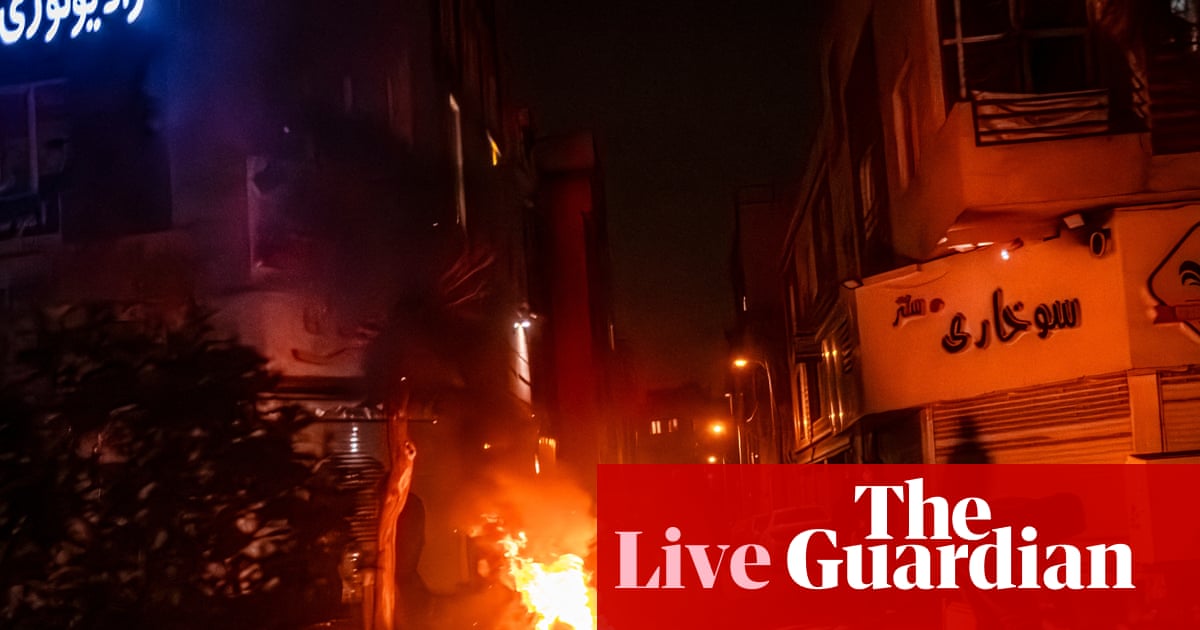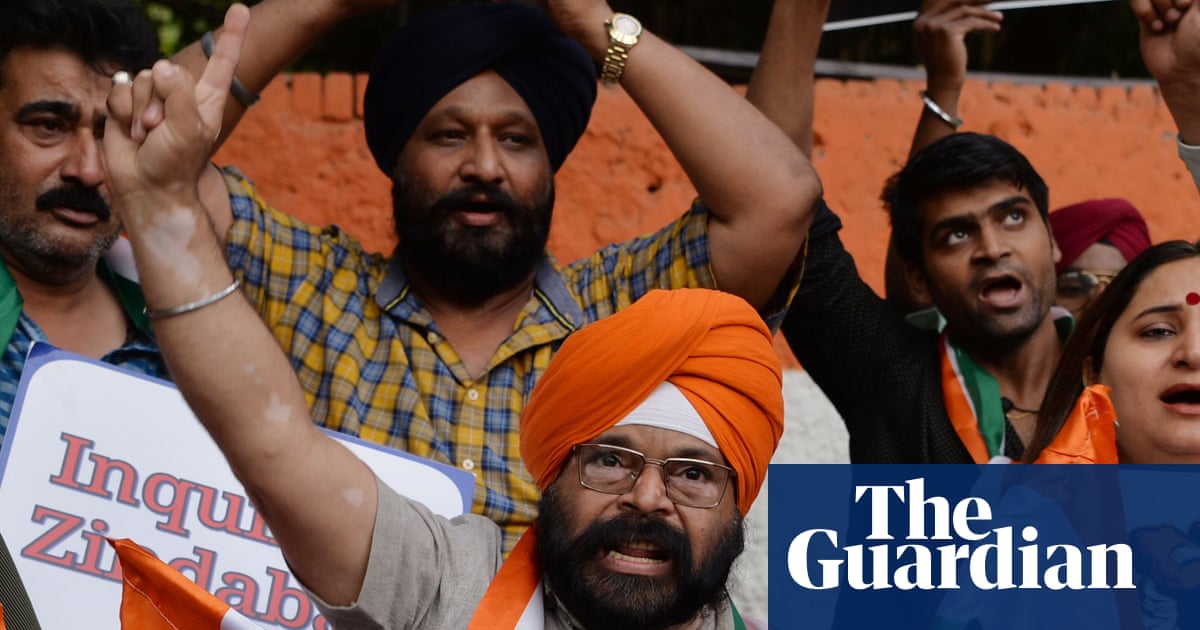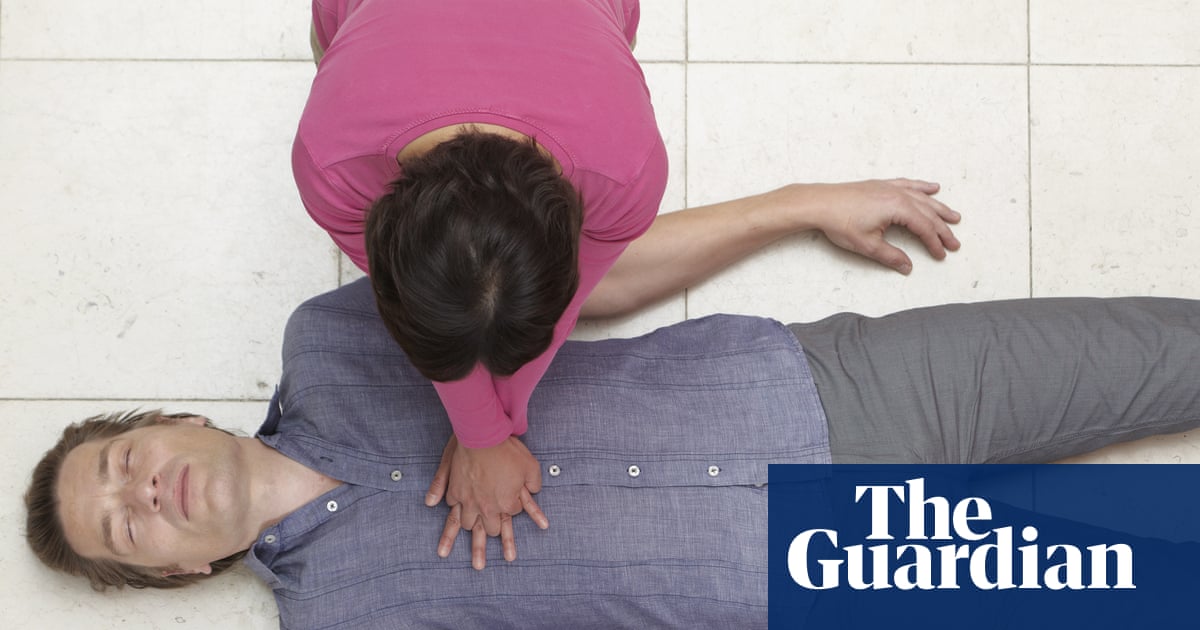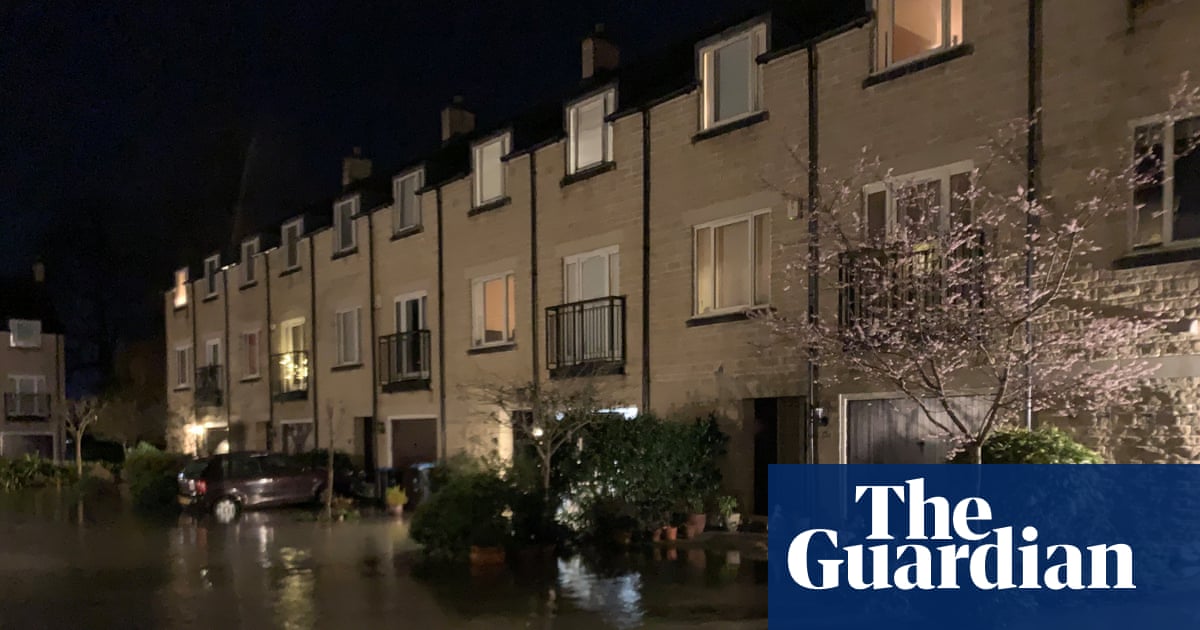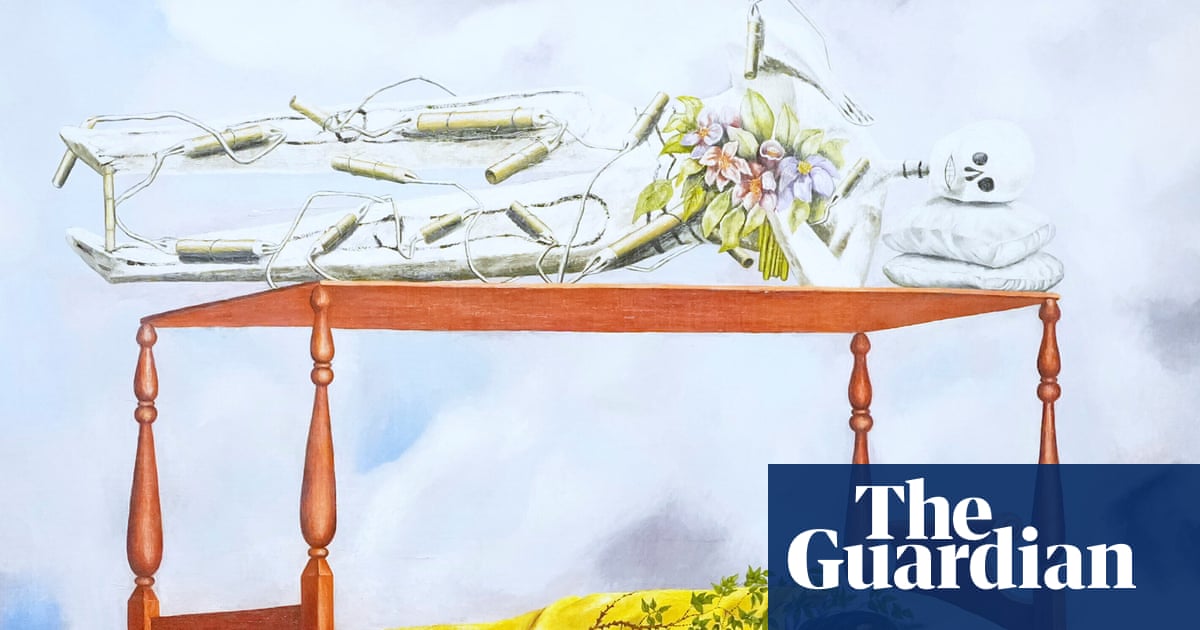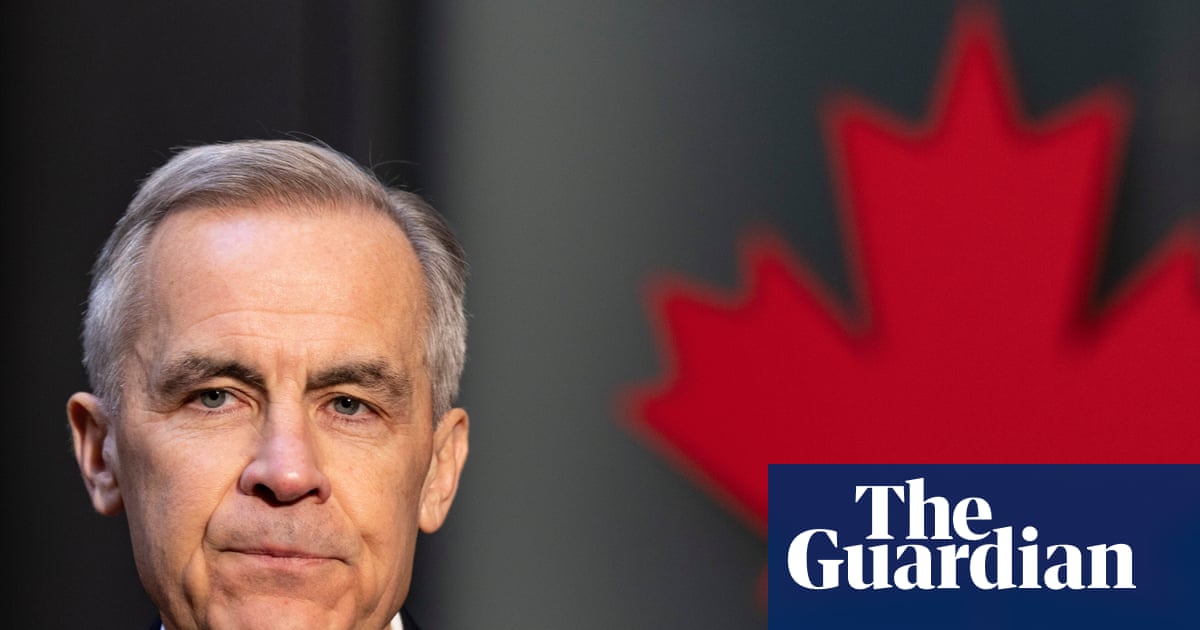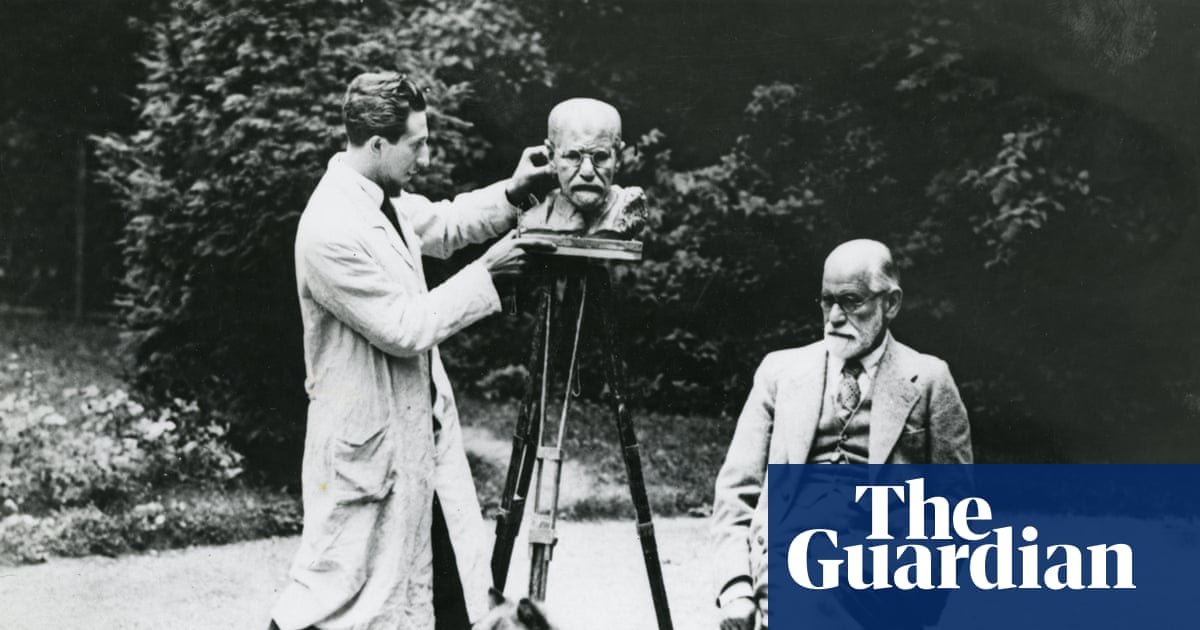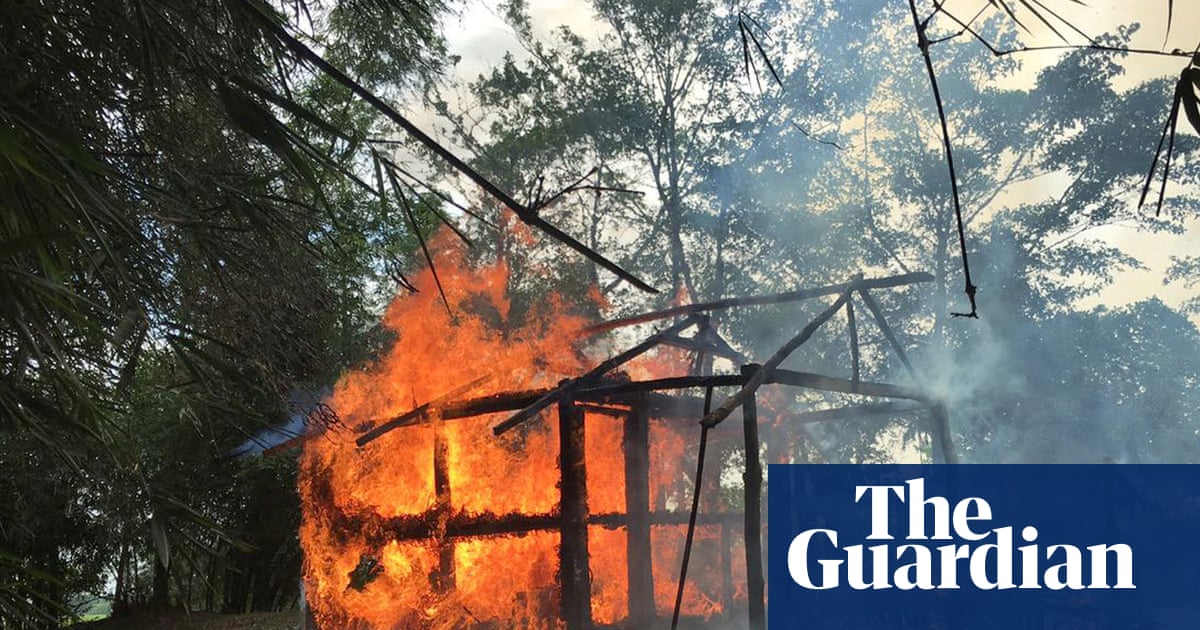When she woke on that Sunday morning, Fatima was part of a family preparing to celebrate – she was due to give birth to her third child any day and her brother was on his way home from Saudi Arabia to get married.
But by mid-afternoon, the family were instead preparing for a funeral – both Fatima and her baby were dead.
The family say they do not follow international news, but Fatima’s death can be directly traced back to decisions taken weeks earlier, thousands of miles away, in Washington DC.
Fatima lived in the village of Dhubay’ah, in eastern Yemen’s al-Masilah district. At the entrance to the village, where goats and camels wander freely, rusting signs bear the logos of international organisations, evidence of sporadic aid efforts in the area.
Women marry young – some in their early teens – and have large families. According to the local health centre, there are now 56 pregnant women among the village’s 171 households.
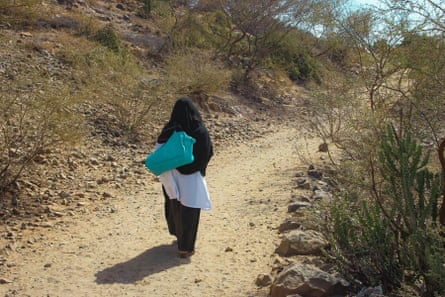
Becoming pregnant in Yemen can be risky. The country has a high maternal death rate: one woman dies in pregnancy or childbirth every two hours, according to the UN. About 118 women die from pregnancy-related causes for every 100,000 live births. In the UK, the figure is eight.
When Fatima’s labour pains began on 25 May, her parents took her to the nearby al-Eis health clinic.
“I kept telling her, ‘you must be near the doctor, because if anything happens, it’s better for it to happen there,’” recalls her mother. Fatima had already needed a blood transfusion late in her pregnancy. “When we finally took her to the doctor, everything was fine – she was even walking on her own.”
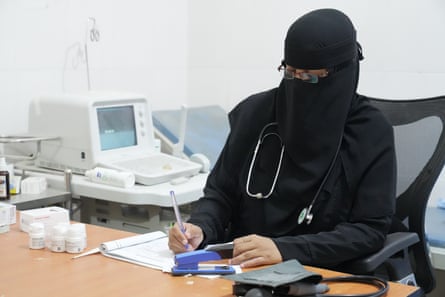
Fatima was seen by midwives, and then by Reem, the unit’s doctor.
“When she arrived, she was in pain but was responsive and communicative,” Reem says. “The foetal heartbeat was stable and her vital signs were normal.”
By midday, Fatima’s cervix was fully dilated and she was moved to a delivery bed. But something was wrong – the baby’s heartbeat was slowing and it had not moved farther down the birth canal.
Fatima told staff: “I feel like I will not be able to give birth. I feel abnormal and the heat is unbearable.”
Reem contacted the nearest hospital in Sayhut, a 10-minute drive away, because it looked likely that a caesarean section would be needed. Al-Eis does not have the facilities to deal with obstetric emergencies.
But the hospital in Sayhut said it could not accept her. The medical staff at al-Eis cannot recall the reasons given but Fatima’s family say they were told it was because there was not enough diesel to run the generator.
Sayhut’s emergency obstetric services had been reliant on funding from the US government via the UN Population Fund (UNFPA), which was abruptly cut by President Donald Trump earlier this year.
The cuts left Sayhut hospital short of the medicines, fuel and the medical personnel needed to treat emergencies.
Dr Saeed Mubarak, the hospital director, said in a statement to the Guardian: “UNFPA’s support for emergency obstetric services at Sayhut hospital had stopped. We are unable to provide emergency obstetric care, nor surgical services or caesarean operations during this period.”
At about midday, in al-Eis clinic, the baby’s heartbeat had increased after oxygen was given, but Fatima and her unborn child needed more advanced care. With Sayhut hospital not an option, Reem decided to send them in an ambulance to al-Raidah hospital, an hour and a half away.

Fatima’s mother sat in the front of the ambulance next to the driver. “At first, everything was fine; we gave her IV fluids and she improved,” Fatima’s mother says.
“Because of the heat, we stopped at a small shop to buy her juice, and I saw her regain her strength after drinking it. We never expected that death could come so suddenly.”
In the back of the ambulance, the senior midwife, Sarah, saw sudden signs of danger. “Her abdomen had enlarged,” she says. “Her face became pale, her lips and mouth showed signs of paleness – indications of internal bleeding.
“I observed these signs when we were halfway along the rough and uneven road. We thought the jolting might have caused these symptoms.”
As they reached the next district, Fatima fell unconscious. Sarah checked her vital signs, but felt no pulse.
“I knew she was in her last moments,” she says. “I held her on my lap and asked the paramedic with me to recite the shahada [Islamic profession of faith] for her, whispering: ‘I bear witness that there is no god but Allah, and I bear witness that Muhammad is the messenger of Allah.’ When we arrived at al-Raidah, she had already passed.
“The feeling was indescribable; we were all in shock. I was the first to leave the ambulance, to notify them that Fatima had died on the way.”
She had suffered a uterine rupture, when the womb tears open during labour and massive bleeding follows. They are more common in women who, like Fatima, had had a previous caesarean section.

Her cousin and brother-in-law, Omar, had followed the ambulance with other family members, including a relative prepared to donate blood should she need it.
“It was a tremendous shock,” he says, adding that the loss hit Fatima’s husband hard.
“Despite his attempts to appear strong, the pain is clear on him. His behaviour has changed and he is still living with the bitterness of loss and shock.
“We share this pain with him and see it in his silence and isolation – clear signs of deep grief. He has not yet reached a stage of healing, as the shock still overwhelms him, because of what Fatima meant to him.”
Her daughters, aged five and six, tell playmates that their mother had to take their baby brother to God.
Fatima was the oldest of her siblings, the youngest of whom is four years old and loved her as a second mother, Omar says. “Fatima was one of the kindest women we knew, both as a cousin and as a sister-in-law.”
Her other brother was on his way from Saudi Arabia, and the family were unable to reach him to tell him what had happened. He arrived home before the ambulance carrying his sister’s body had arrived.
“When he entered, the house was crowded with women. At that moment, he must have thought they had gathered to welcome him home after his time abroad, not to mourn his sister. One can only imagine the shock he felt when he realised the truth – from a moment of joy to a moment of crushing sorrow,” says Omar.
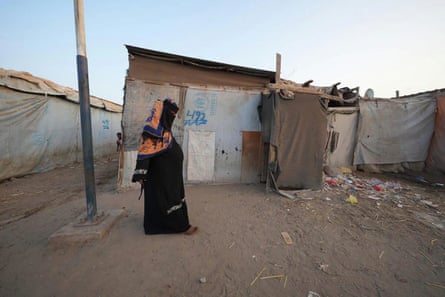
It is hard, he says, to understand why Sayhut hospital had been unable to accept Fatima.
“How could they not have fuel to run the ambulance or the essential equipment? If the reason they couldn’t admit her was the lack of diesel, then that is a major catastrophe. And if there were other reasons, the responsibility falls on the concerned authorities.”
Might Fatima have lived, had Sayhut been an option?
“Sometimes the thought crosses our mind,” Omar says. “[But] we believe in Allah’s will and decree, and we know that no soul is taken except at its appointed time.”
Reem is more blunt. “A shorter transfer time could have saved her life,” she says. “When [the midwife] told me, I was shocked and cried.
“As women, we put ourselves in her place. She left behind two daughters – it’s truly tragic. A mother’s departure is not just the loss of children or a husband, but the disintegration of an entire family. It’s very difficult, a soul is lost.”
Reem comes from a city in a neighbouring province, and has been shocked at the lack of healthcare available in the area since she arrived seven months ago. Where there are facilities, they lack basic drugs and equipment or even fully trained staff.
“I did not expect such conditions in my own country,” she says.
Dhubay’ah village is fortunate to be relatively close to medical facilities. Some people in the valleys of Al-Mahrah may live 12 hours away from healthcare, Reem says.
“These 12 hours are not all by car; some parts involve walking for about three hours from one area to another. During Eid al-Adha [festival], there was a pregnant patient with a fever who had been carried on a blanket by men for about three hours.”

Sarah, a midwife for 17 years, says women in remote communities with signs of complications to their pregnancy can “remain untreated for days – sometimes up to three days – and tragically, some pass away” due to a lack of transport.
Understanding the risks in pregnancy, such as high blood pressure, is another challenge, she says. “Unfortunately, this lack of awareness has worsened, especially given the harsh living conditions. Women often say, ‘I will endure this for the sake of my children. If I get the money tomorrow, I’ll seek treatment.’”
Sarah would like to see greater efforts to raise awareness of health problems, such as through mosques and religious leaders, and more fully trained midwives in rural areas.
“Support from organisations is essential,” she says. “Even minimal support can make a significant difference.”
The UNFPA’s contract to support reproductive health in Yemen was among thousands halted once USAID was shut down.
The organisation had anticipated some loss of funding under Trump, due to longstanding and false Republican claims that it participated in programmes of coerced abortion.
But the scale and speed was “unprecedented”, says Andrew Saberton, a deputy executive director at UNFPA, speaking from its New York headquarters. The US government terminated 45 grants to UNFPA, totalling $336m (£250m), the majority of which were “humanitarian and life-saving in nature”, the UNFPA says.
“No administration had previously closed ongoing agreements that the previous administration had signed,” says Saberton.
US funding had covered 60% of UNFPA’s humanitarian work in Yemen. The in-country team had to make “heartbreaking” decisions rapidly, Saberton says.
“Nearly 1.5 million women have lost access to life-saving services, and 300,000 have lost access to prevention and treatment for gender-based violence. Support to 44 health facilities, 10 safe spaces for women, one mental health centre and 14 mobile health and protection teams have now ceased to operate.”
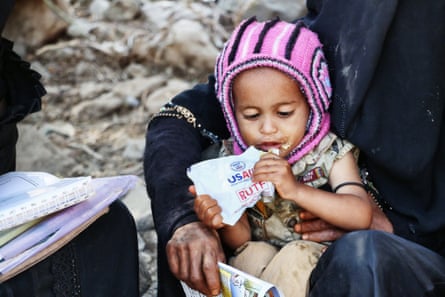
The US administration has repeatedly denied that aid cuts have caused any deaths. Three days before Fatima died, Marco Rubio, the US secretary of state, repeatedly claimed in a congressional hearing that “no one has died” as a result of aid cuts.
Saberton says that cannot be true. Governments insisted, in return for funding, on detailed reports on how many maternal deaths would be avoided, he says.
“They wanted the good news. Well, the opposite is true, too. We will do less with less – there is no way of plugging that gap, it is too big a crisis, and when that funding is cut, lives will be lost.”
Saberton points out that it was not just the US making cuts to overseas development aid. The UK and other countries have also reduced spending on aid.
The UNFPA has identified another two pregnant women in Yemen’s Hajjah governorate who died in May en route to emergency care, after clinics closer to home were left unable to help them because of cuts.
Enshrah Ahmed, UNFPA representative in Yemen, says: “[Fatima’s] entirely preventable death was a direct consequence of funding cuts.
“Unfortunately, she didn’t have the time to reach the next available care that could have saved her life. Unless funding is forthcoming, this tragedy will be repeated, countless times over.”

 3 months ago
68
3 months ago
68
